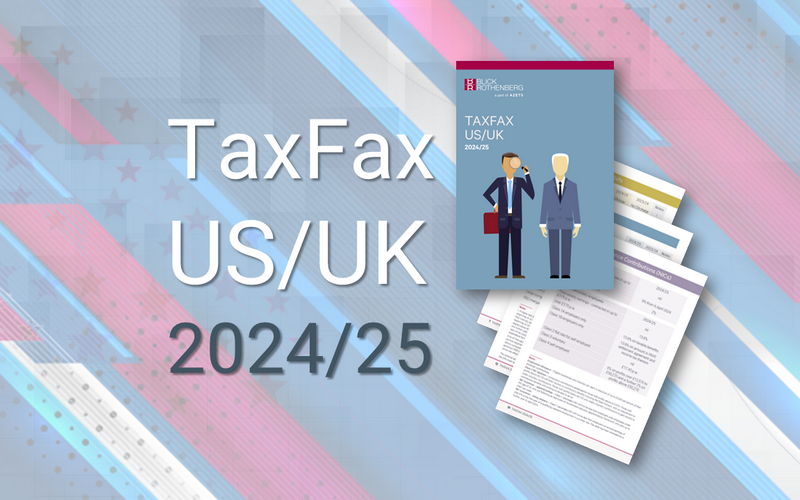
US Insights
U.S. Tariff Changes: What UK Founders and CFOs Need to Know
U.S. Tariff Changes: What UK Founders and CFOs Need to Know
Removal of the ‘de minimis’ threshold
Michael Holland, Partner and Lead on US Expansion at Blick Rothenberg talks to Simon Sutcliffe, Founder, Aesica Customs & International Trade Advisory about the implications of President Trump’s recent removal of the de minimis threshold on low-value goods entering the U.S., effective from the 29 August 2025.
The removal of the de minimis threshold increases costs and administrative burdens for UK exporters. Goods that were previously duty-free now attract tariffs based on their category and country of origin. This change affects pricing, delivery times, and customer experience.

U.S. Tariff Changes: What UK Founders and CFOs Need to Know
On 29 August 2025, the United States implemented a “momentous change” to its import tariff regime, removing the long-standing “de minimis” exemption that allowed low-value goods (under $800) to enter the country duty-free. This shift has direct implications for small to medium transatlantic businesses, particularly those in e-commerce, retail, and manufacturing.
What changed?
Previously, UK companies could ship goods valued at $800 or less to U.S. customers without paying import duties or filing formal customs paperwork. This exemption, known as the de minimis rule, was widely used by e-commerce sellers and small exporters. As of 29 August, the exemption has been suspended for all countries. Now, nearly all shipments must go through formal customs clearance and may be subject to tariffs.
Why It Matters
The removal of the de minimis threshold increases costs and administrative burdens for UK exporters. Goods that were previously duty-free now attract tariffs based on their category and country of origin. This change affects pricing, delivery times, and customer experience.
Key Impacts for UK Businesses
- Supply Chain Adjustments
UK firms may need to rethink their fulfilment strategy. Direct-to-consumer shipping from the UK is now more expensive and complex. Many businesses are exploring bulk shipping to U.S. warehouses or partnering with U.S.-based fulfilment centres to reduce per-shipment costs and streamline customs compliance.
- Pricing Strategy
With tariffs now applying to almost all shipments, UK exporters must decide where the duty cost should go, and whether to absorb the additional costs, pass these costs to distributors in the U.S., or pass them on to U.S. customers.
- Compliance and Administration
Formal customs declarations are now required for nearly all shipments. This means more paperwork, accurate product classification, and potential delays.
What Transatlantic businesses should do
Reconsider your customs compliance obligations: Work with advisors to ensure you are meeting all your obligations with accurate declarations in order to avoid penalties.
Review your U.S. fulfilment model: Consider your supply chain model and your use of warehousing or third-party logistics in the U.S.
Update pricing and customer communications: Ensure tariffs are factored into your pricing and clearly communicated as soon as possible.
Monitor further developments: U.S. trade policy is evolving. Stay informed about potential relief measures or future trade agreements.
Want to know more?
If you are unsure how these changes might affect your business, or would like tailored advice on customs compliance, supply chain adjustments, or pricing strategy, the specialists at Blick Rothenberg can help. Our team advises businesses of all sizes on navigating complex international trade rules and minimising the impact of tariffs.
If you would like to discuss the above, please get in touch with your usual Blick Rothenberg contact, or Michael Holland using the form below.

















